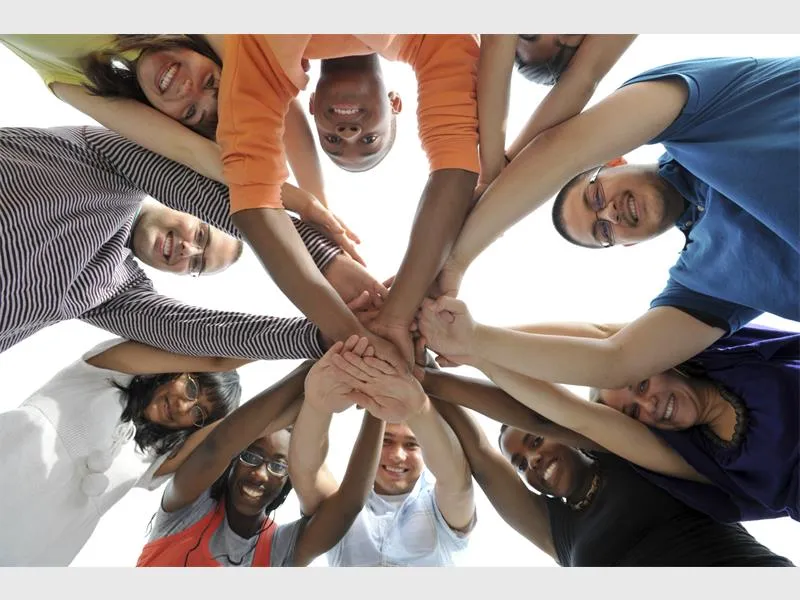-
CENTRES
Progammes & Centres
Location
By fostering evidence-based youth policies, societies can work towards implementing the SDGs at all levels, thus benefiting the youth and enhancing overall societal well-being

Investing in the youth has long been recognised as a critical aspect of advancing human capital. However, beyond the lens of economic development, it is imperative to view youth investment through the prism of intrinsic well-being. Contemporary youth development frameworks encompass various domains of adolescent well-being, ranging from physical health and nutrition to skills and employability. While physical and mental health plays a vital role in well-being, broader definitions encompass subjective personal experiences and objective assessments of overall quality of life.
Table 1: Youth Well-being Framework
Source: Ross et al. (2020), “Adolescent Well-Being: A Definition and Conceptual Framework”
Sustainable development goals vis-à-vis youth well-being
The United Nations' World Youth Report 2018 explores the mutually interdependent roles between the Sustainable Development Goals (SDGs) Agenda 2030 and the ongoing youth development efforts. By fostering evidence-based youth policies and intensifying youth development efforts, societies can work towards implementing the SDGs at all levels, thus benefiting the youth, and enhancing overall human capital and societal well-being.
SDG 3 (Good Health and Well-being) underscores the importance of advancing health and well-being across all age groups. Adolescence, a transitional phase between childhood and adulthood, is a critical period in a young person's life. For the youth, especially adolescents, this becomes a pivotal period when the foundations of well-being for the long term are established. Physical health and access to proper nutrition are central to laying the groundwork for healthy development.
Likewise, mental health and emotional well-being are instrumental in fostering resilience and coping abilities during the challenges that accompany adolescence. Indeed, the COVID-19 pandemic has brought forth a fresh array of mental health difficulties for young individuals across the globe. In the United States (US), a mental health crisis was recognised in 2021. However, even before the pandemic, there had been a notable rise of approximately 40 percent—in emotions of enduring sadness and hopelessness, along with occurrences of suicidal thoughts and behaviours—among young individuals in the US over a decade.
Ensuring access to quality education and skills development is fundamental in preparing young individuals for the future.
However, well-being encompasses more than just physical and mental health. It also entails social connections, educational opportunities, and economic empowerment. Ensuring access to quality education and skills development is fundamental in preparing young individuals for the future. While SDG 3 specifically addresses youth well-being, other youth-specific SDGs are equally vital for realising the targets of youth well-being.
SDG 4 (Quality Education) is particularly crucial in advancing youth well-being. Access to quality education equips young individuals with essential knowledge and skills, enhances their employability prospects, and empowers them to make informed decisions about their lives and health. According to UNESCO, to meet the sustainable development objectives outlined in Agenda 2030, there is a projected need for the annual education expenditure to increase from US$ 149 billion to US$ 300 billion from 2015 to 2030. Furthermore, SDG 8 (Decent Work and Economic Growth) is pivotal in promoting youth well-being by creating job opportunities and fostering economic empowerment.
The Commonwealth Youth Plan of Action emphasises the concept of well-being through a human rights approach to youth development. This approach seeks to address power imbalances and discrimination by advocating for the rights of marginalised groups and empowering young individuals through skills and opportunities for personal growth and societal progress. To this end, the plan advocates for “mainstreaming the youth,” including budget allocation for youth development, introducing youth perspectives to relevant government departments, facilitating youth participation in policymaking, monitoring youth progress, and building knowledge related to youth empowerment.
Incorporating the principles of a human rights approach enables a more comprehensive understanding of youth well-being. It recognises the unique challenges vulnerable young individuals face, including those from disadvantaged backgrounds, ethnic minorities, and those with disabilities. By addressing structural inequalities and providing targeted support, societies can create an inclusive environment that fosters the well-being of all youth.
By addressing structural inequalities and providing targeted support, societies can create an inclusive environment that fosters the well-being of all youth.
Finally, engaging young people in decision-making processes and policymaking ensures that their perspectives and needs are considered. Providing platforms for youth to participate in community development projects and social initiatives enhances their sense of purpose and contributes to positive societal change. Additionally, recognising the diverse domains of adolescent well-being, the global community must strive to achieve the targets outlined in the youth-specific SDGs. Moreover, an evidence-based policy framework and increased financial investment in education, health, and holistic youth development are critical to realising the goals of youth well-being.
Soumya Bhowmick is an Associate Fellow with the Centre for New Economic Diplomacy at Observer Research Foundation.
The views expressed above belong to the author(s). ORF research and analyses now available on Telegram! Click here to access our curated content — blogs, longforms and interviews.

Soumya Bhowmick is a Fellow and Lead, World Economies and Sustainability at the Centre for New Economic Diplomacy (CNED) at Observer Research Foundation (ORF). He ...
Read More +